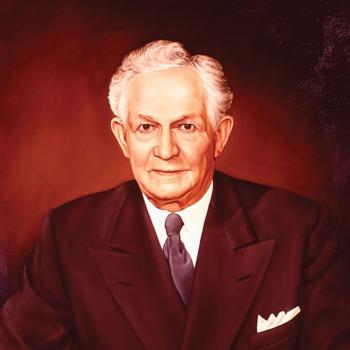Astrology, the ancient practice of interpreting celestial influences on human lives, has flourished across different cultures for millennia. Among the most prominent systems are Western (Tropical) astrology and Vedic (Sidereal) astrology. Although both systems share common roots, they differ greatly in their methods, calculations, and interpretations. Understanding these distinctions reveals the unique insights each system offers.
My Journey Through the Stars
Like many raised in the West, I initially dismissed astrology as mere superstition. During a college astronomy class, my professor even mocked astrologers as misguided pseudoscientists. Yet years later, after a personal spiritual crisis—the proverbial “dark night of the soul”—my spiritual journey took me away from Christianity and into Eastern philosophy, particularly Hinduism and Buddhism. Through this exploration, I discovered Vedic astrology, an integral part of Hinduism. A formal reading from a Vedic astrologer in India blew me away with its accuracy, offering profound insights into my personality, family dynamics, spiritual journey, and even my future. It nailed me to a tee.
I was drawn to Vedic astrology over the Western system because of the evidence supporting Vedic astrology, such as ancient texts detailing celestial positions, astronomical calculations, and observations of planetary movements that align with modern findings. The accuracy of these predictions, such as eclipses and planetary cycles, lends credibility to the Vedic astrological system.
Astrology in the Headlines
Astrology gained international attention this summer thanks to Amy Tripp, dubbed the “internet’s most notorious astrologer.” A Western astrologer known for her precise political predictions, Tripp made headlines when, on July 11, 2024, she predicted that President Joe Biden would step down during the Capricorn Full Moon on July 21, 2024. She highlighted Capricorn’s symbolic association with government and old age, as well as the significance of the 29-degree mark, which traditionally indicates an ending. Tripp’s previous forecasts included predicting Donald Trump’s return to power, which she attributes to key astrological influences like Uranus—a planet often associated with unpredictability and sudden shifts.
While Tripp’s predictions attract attention, particularly among those who believe in astrological interpretations of political events, it’s essential to remember that astrology, like all interpretative arts, offers a lens through which to view possibilities rather than certainties. Her bold claims have sparked discussion and curiosity, especially given her past accuracy.
Western Tropical Astrology: A Seasonal Framework
Western, or Tropical, astrology is rooted in the Earth’s orientation relative to the Sun. The zodiac is divided into twelve equal sections, beginning with Aries at the vernal equinox, marking the start of spring in the Northern Hemisphere. Each zodiac sign is linked to a particular time of year, offering psychological insights into human behavior and personality. For instance, Aries, as the first sign of spring, embodies initiative and leadership.
Tropical astrology focuses primarily on personality, motivation, and psychological patterns, making it a tool for self-awareness and personal development.
Vedic Sidereal Astrology: A Cosmic Perspective
Vedic astrology, or Jyotish in Sanskrit, hails from ancient India and is based on the actual positions of stars and constellations. Unlike Tropical astrology, it accounts for the Earth’s axial precession, which causes the zodiac to drift over time. This makes Vedic astrology roughly 23 degrees behind its Western counterpart, meaning someone born under Aries in Western astrology might be considered a Pisces in the Vedic system.
Vedic astrology delves deeper into karma and destiny, offering predictive insights into various life events like career, health, and relationships. It’s a complex system, incorporating multiple divisional charts, yogas (planetary combinations), and dashas (planetary periods), making it highly detailed and specific in its predictions.
Points of Divergence and Debate
The differences between Western and Vedic astrology have sparked debate. Tropical astrologers argue that aligning the zodiac with the seasons reflects the cyclical nature of life on Earth. This system, they say, provides a strong psychological framework for understanding personality and life patterns.
In contrast, Vedic astrologers emphasize the Sidereal system’s accuracy, given that it’s based on the stars’ true positions. They also highlight the predictive power of Vedic astrology, offering detailed timelines and insights that Tropical astrology sometimes lacks.

The Case for a Hybrid Approach
Some astrologers advocate for a hybrid approach, merging the psychological depth of Western astrology with the predictive precision of Vedic astrology. This blend allows for a holistic understanding of an individual, integrating personal traits and karmic influences. By combining these systems, one can gain both internal (psychological) and external (fate-driven) insights, making for a more well-rounded astrological reading.
Prominent Thinkers Who Used Astrology
Many prominent figures throughout history have explored or believed in astrology:
- Johannes Kepler (1571–1630): While known for discovering the laws of planetary motion, Kepler practiced astrology, viewing it as a symbolic language that mirrored natural laws.
- Isaac Newton (1642–1727): Although not a public advocate, Newton was intrigued by astrology and other esoteric traditions like alchemy, which influenced his work on celestial mechanics.
- Carl Jung (1875–1961): The renowned psychologist embraced astrology, using it to explore archetypes and the collective unconscious.
- JP Morgan (1837–1913): The legendary financier reportedly used astrology to guide his financial decisions, famously saying, “Millionaires don’t use astrology; billionaires do.”
- Sir Francis Bacon (1561–1626): The father of the scientific method was also interested in astrology, believing the stars influenced natural processes on Earth.
- Albert Einstein (1879–1955): Though it’s debated whether Einstein practiced astrology, he reportedly expressed openness to the field, calling it a “science in itself” in one disputed quote.
Conclusion
Choosing between Western Tropical and Vedic Sidereal astrology depends on personal preference and one’s astrological needs. Whether seeking psychological insights or karmic predictions, both systems offer unique perspectives. By embracing a hybrid approach, one can enjoy the best of both worlds—delving into personality traits while understanding karmic patterns and life paths.













